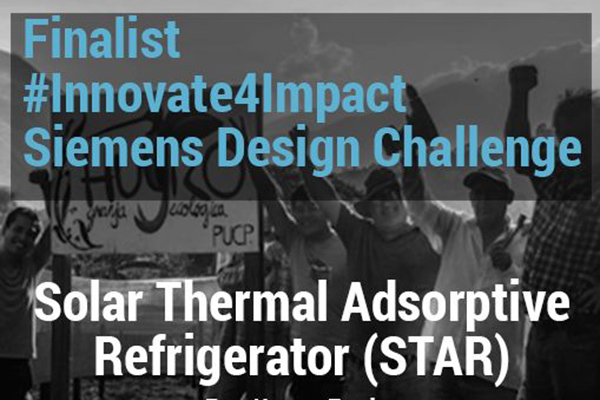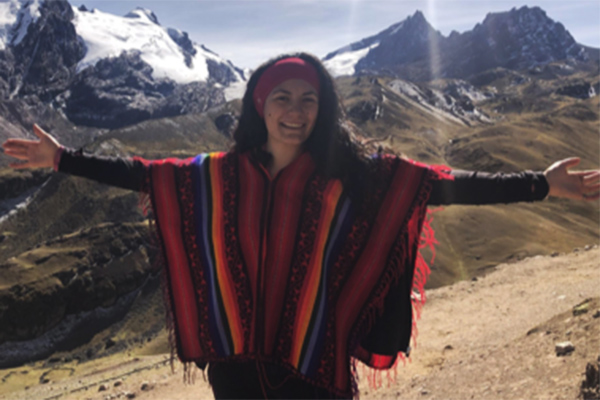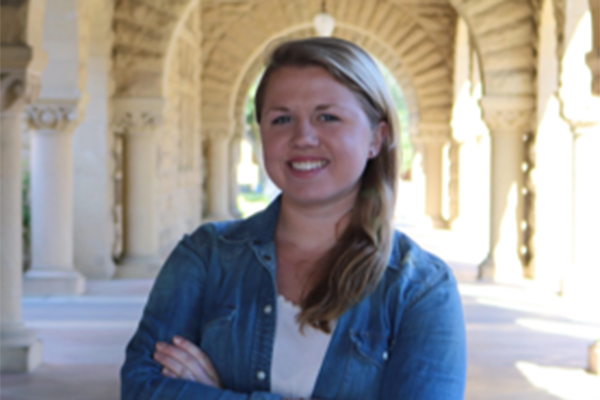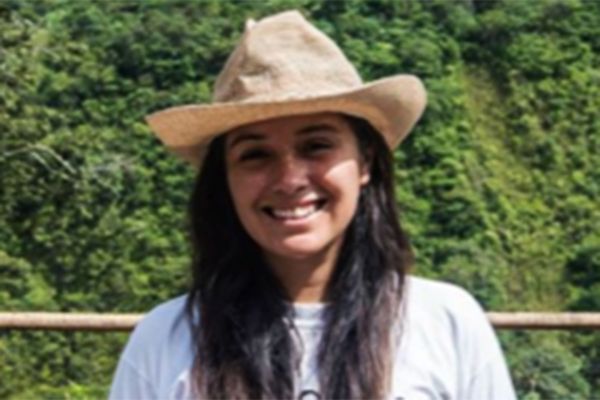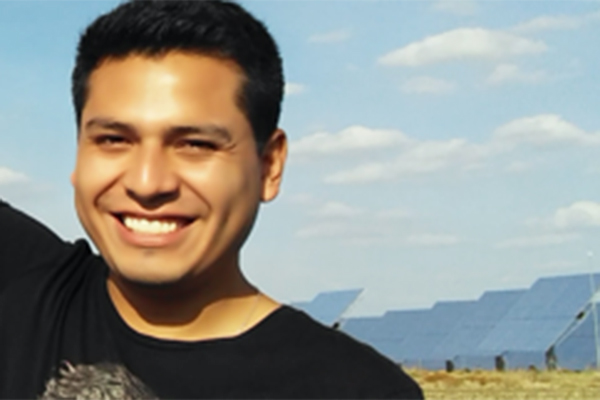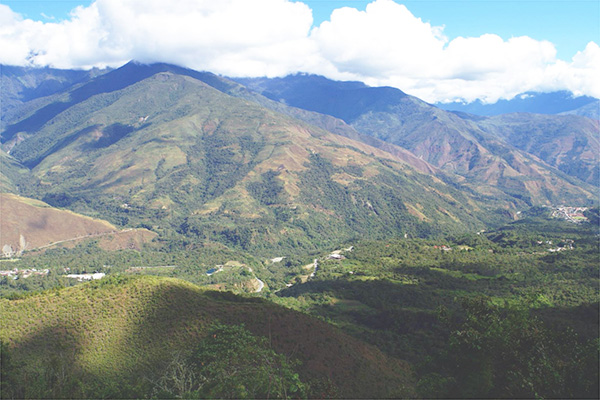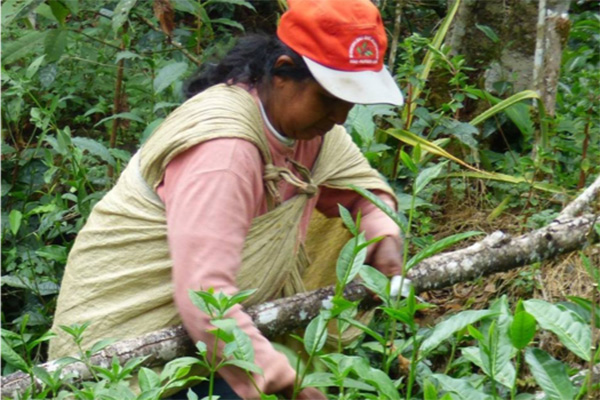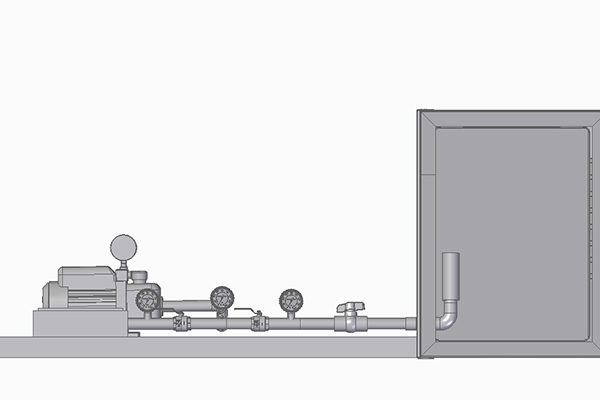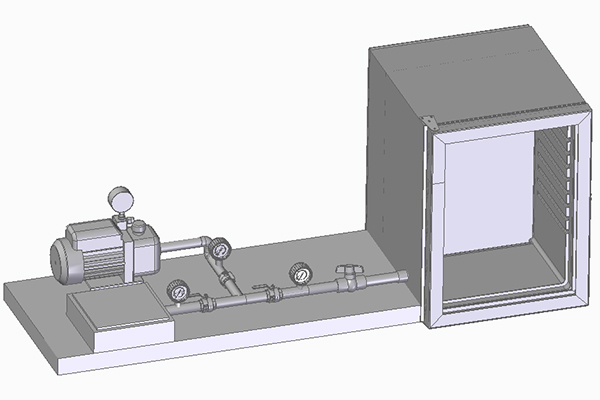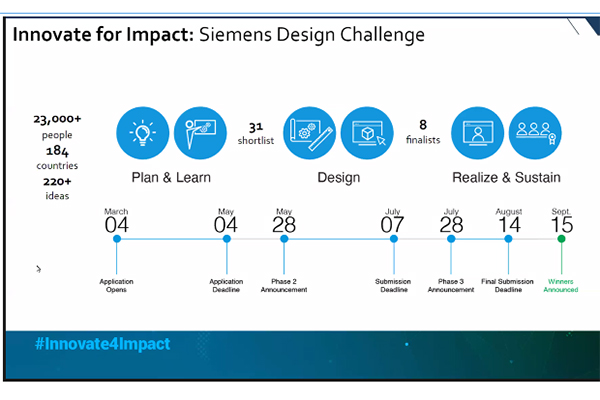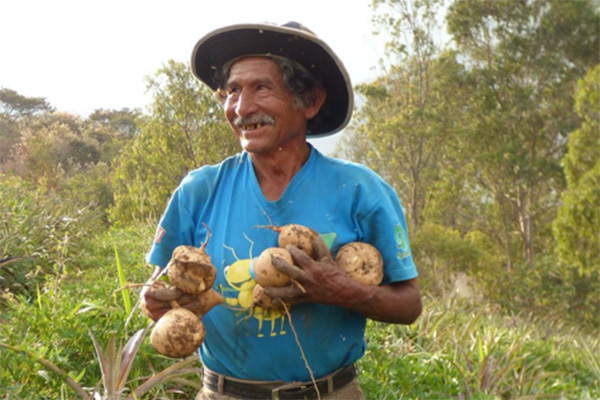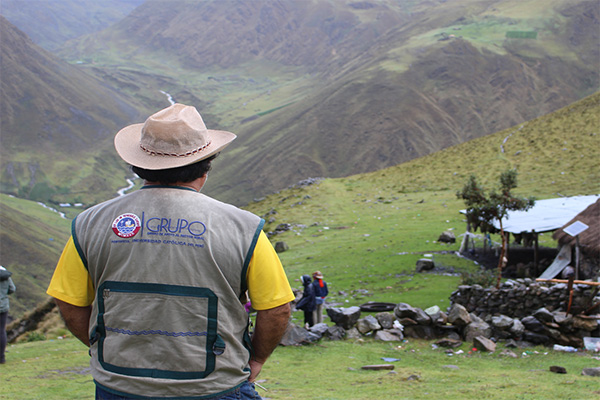Dayton Engineer
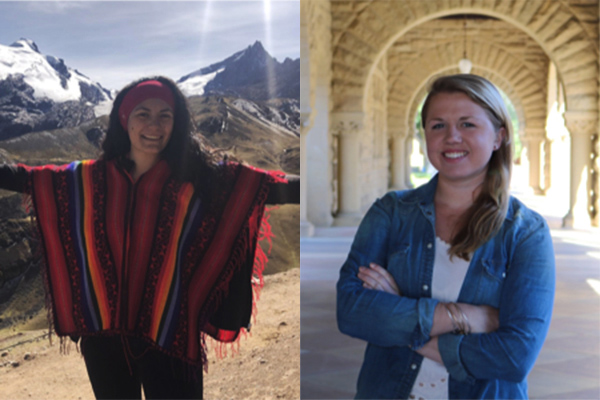
University of Dayton ETHOS students selected as finalists for global design challenge
By Karen Updyke, School of Engineering
The University of Dayton ETHOS Center and Pontificia Universidad Católica del Perú GRUPO team was recently named as a finalist in the Innovate for Impact: Siemens Design Challenge. On September 15, on a virtual international stage, the team awaited the announcement of the winners.
The ETHOS / GRUPO team
University students, Rosie Errigo, renewable and clean energy engineering graduate program, and Brianna Dooley, mechanical engineering major, coordinated with GRUPO researchers, Sandra Vergara, MSc in thermal energy systems, and Sergio Jordan, BSc mechanical engineer operations, to solve food storage dilemmas in Peru and address UN SDG #2-Zero Hunger.
The University ETHOS Center (Engineers in Technical Humanitarian Opportunities of Service Learning) offers students technical, engineering and service-learning immersions around the world. GRUPO, a research unit run by PUCP, serves the rural sector of Peru.
STAR: Solar thermal adsorptive refrigeration
Their food storage solution applied solar thermal adsorptive refrigeration technology for cold storage to rural areas without electricity. STAR employs solar energy, activated carbon and ethanol to create a refrigerated environment.
According to Dooley, “The motivation for STAR was to provide reliable and sustainable refrigeration for farmers and producers in the small town of Huyro, located in the high jungle of Cusco, Peru.”
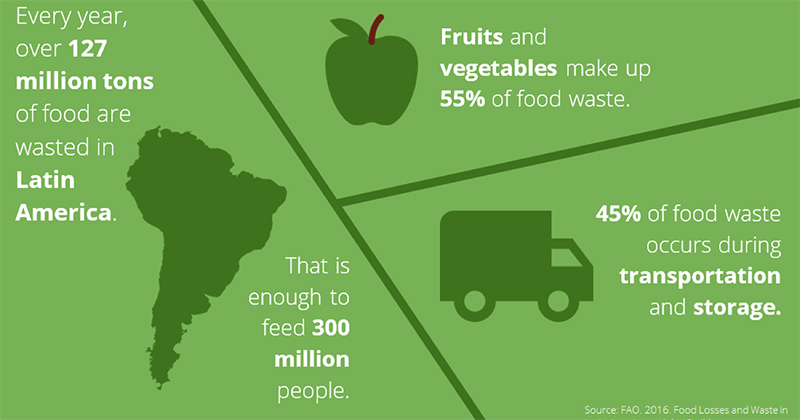
University faculty, Dr. Malcolm Daniels, former director, ETHOS Center, and electrical and computer engineering professor, and Dr. Amy Ciric, chemical and materials engineering professor, were project advisers. Dr. Daniels recounted:
This is a great story about how UD engineering students adapt and read ‘the signs of the times’ in new ways. Rather than let COVID get in the way, Rosie [Errigo] returned from Peru in March and continued to work with GRUPO at PUCP on STAR. We all worked from home, since PUCP also closed their campus. Recruiting Brianna [Dooley] who was scheduled to arrive in Peru in May, the ETHOS / GRUPO team pulled off a great design for this competition addressing not only one of the most critical UN SDGs #2: Zero Hunger but also figuring out how to take STAR from the lab and into field-based trials in the Peruvian Andes. It's good engineering and also good work! It's a strong testament to their commitment to the ETHOS Center values and our long-standing partnerships with communities around the globe.
“I was so grateful to continue my ETHOS immersion from my home in Chicago in the middle of a pandemic. STAR is the future of our world. With the constant adaption to renewables, this project is the perfect fit for off-grid farmers. It was a great experience to connect with the incredible people I met when I was in Peru. The project would not have made it as far as it did without the collaboration of everyone involved. I am excited to see where STAR will go in the future and how many people it will help around the world,” said Errigo.
Although the ETHOS / GRUPO team did not win, as one of the four Zero Hunger track finalists, their narrative and innovative technology will help local farmers in Peru and eventually worldwide – STAR – was heard around the world.
“I am passionate about renewable and clean energy, so this project was a perfect fit for me. I hope to eventually work with appropriate technology in developing communities, hence my passion for ETHOS. Rosie and I had a fantastic time working with the team in Peru. We are incredibly proud of what we accomplished,” said Dooley.
The Siemens challenge
The challenge was to design a solution to address United Nations Sustainable Development Goals: #2 Zero Hunger or #6 Clean Water and Sanitation and was sponsored by Siemens, the American Society for Mechanical Engineers, and Engineering for Change.
High-volume response
- March 4, applications began
- 23,000+ people,
- 184 countries,
- 220+ solutions.
- May 28, Phase 2, shortlisted 31 teams to the design stage
- July 28, Phase 3, selected eight finalists, 4 for each track
- September 15, 2 winners announced: 1 from each track
"STAR technology will revolutionize food storage in developing communities by improving food security and increasing nutritional quality – contributing to the progress of SDG #2, Zero Hunger,” said Dooley.
STAR development at the University of Dayton ETHOS Center
Since 2012, faculty and students at the University's ETHOS Center have adapted STAR technology to help where needed throughout the world.
“Oliver Bjorn Winter's cohort in 2012 and Jim Krokey's cohort in 2013 worked on a version of STAR before mine in 2014,” said former UD ETHOS student, Matthew Worsham. “2014-2015, Christopher Denzinger and Gretchen Berkemeier worked on it as graduate students. I worked on it again from 2015-2017, as did Amnah Altaher, Bipin Karki, Claudia Labrador Rached, Katie Willard and Oliver Winter,” said Worsham.
In 2013, UD students, Lathom Loucos and Oliver Winter, and professors, Dr. J. Kelly Kissock and Dr. Malcolm Daniels, presented Design and construction of a solar thermal refrigeration system for Patna, India, at an ASME conference.
"In 2014, Denzinger and Berkemeier, brought the project to the University from Bihar, India, where refrigeration in rural areas was needed to save vaccines from spoiling. Berkemeier wrote the grant for funding through the EPA's People, Prosperity and the Planet (P3) program." In addition, “Bipin Karki did his master’s thesis on STAR, and Joshua Romo did an undergraduate honors thesis, and I cannot stress enough the substantial contributions made by Amnah Altaher who put a significant amount of time and effort into STAR,” said Dr. Ciric.
In 2016, STAR team members, Altaher, Rached, Schlueter, Willard, Winter, and Worsham and faculty advisers, Dr. Jun-Ki Choi and Dr. Amy Ciric, won three awards at the USA Science and Engineering Festival in Washington, D.C.
In 2017, Altaher, Karki and Worsham presented STAR at the University’s Stander Symposium. And Ryan Sara and Joshua Romo presented a poster for ETHOS.
STAR 2020 – new application
In 2020, STAR was a star as a finalist on a international stage in the Siemens global challenge. “The ETHOS Center worked with STAR in India and expanded the technology in Peru," said Dooley.
Congratulations, STAR team!
The ETHOS Center

